Special Report
Life Lessons from the 1900s Still Relevant Today
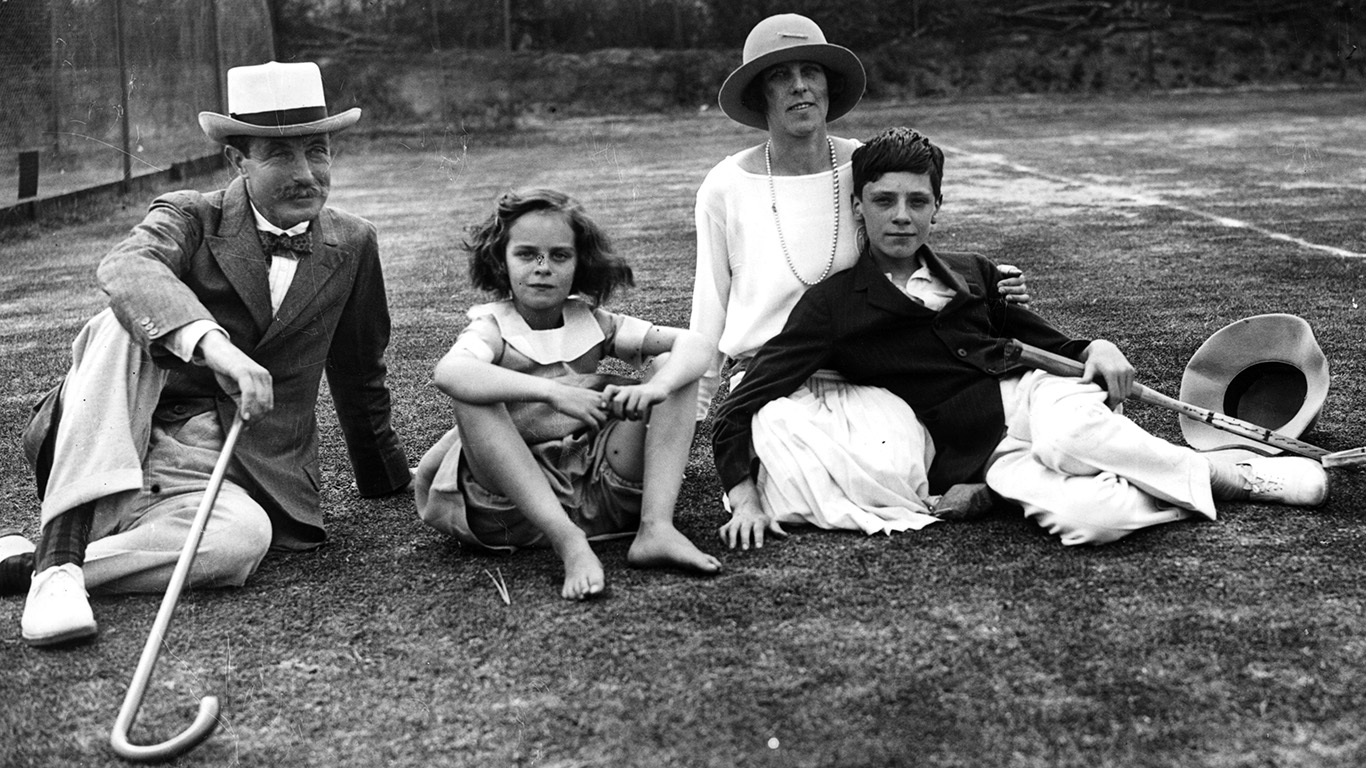
Published:
Last Updated:

The early 1900s were a time of dramatic changes in America. The western frontier had closed. The telephone and electricity were transforming homes. Cars were putting people on the road and the invention of the airplane would soon put them in the air. Industrialization was shifting workers to the cities from farms. More children were going to school and not to work. Immigrants were flowing in from Europe. Laborers were demanding higher wages and safer working conditions. The women’s suffrage movement was gaining momentum.
As these changes took place, Americans were taking to heart lessons that would help them navigate their lives. 24/7 Tempo has compiled a list of life lessons from that time that are still relevant today by consulting sources such as britannica.com as well as gleaning attitudes and perspectives from Thornton Wilder’s play “Our Town,” which depicted small-town American life from more than a century ago.
Click here to read about life lessons from the 1900s still relevant today.
Many of the lessons Americans in the early 20th century learned were the product of age-old proverbs and adages from the ancient Greeks and Romans. Those lessons were learned in schools that bear little resemblance to the schools of today. This is what school days used to look like.
Lessons such as being punctual, learning from failure, and seizing opportunities would help Americans maneuver through the workplace in fast-growing metropolises in the early 20th century. Here are what the most populated cities in America used to look like the decade you were born.
In order to compile a list of life lessons from the 1900s still relevant today, 24/7 Tempo reviewed materials from a variety of websites to try and capture the outlook and perspective of the culture more than 100 years ago. Many of the lessons from that time were imparted in plays such as Thornton Wilder’s “Our Town,” which depicts small-town American life in the early 20th century.
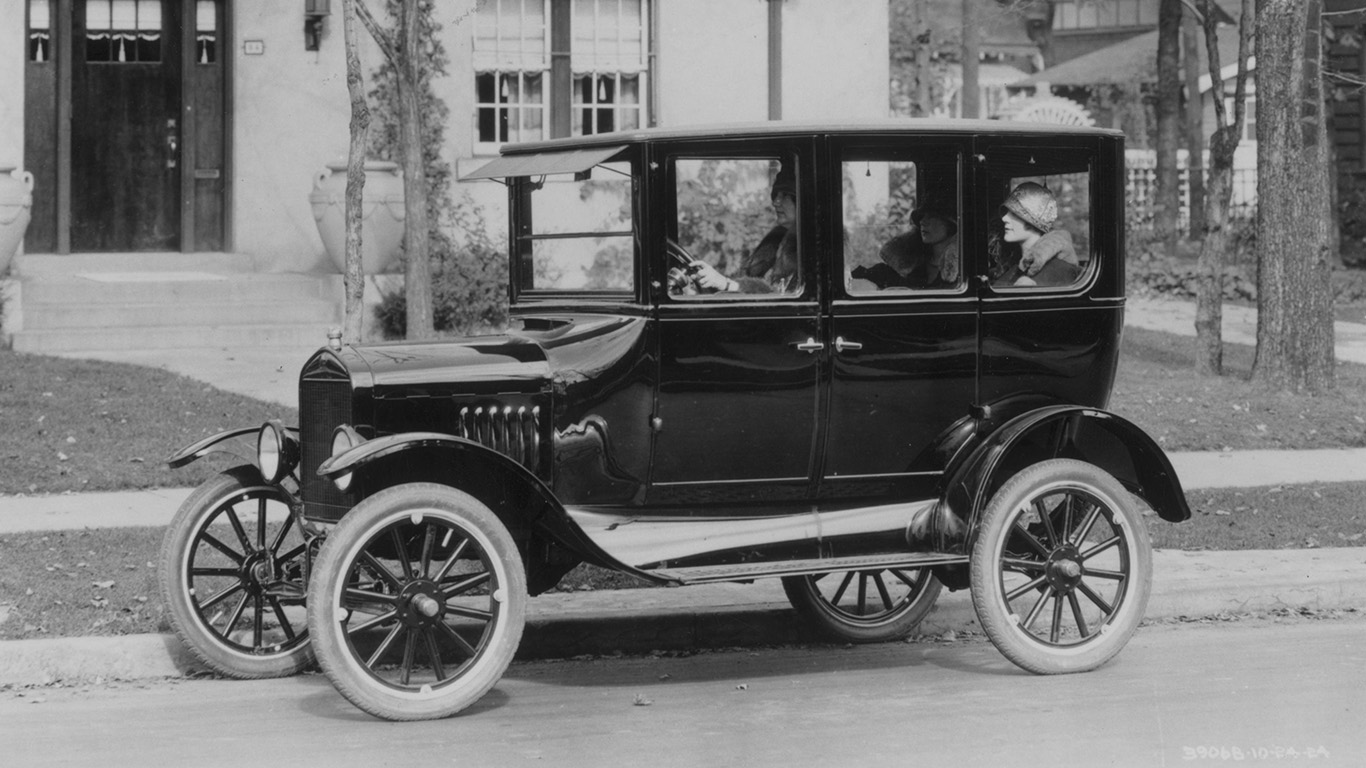
Everything changes
This adage was brought home frequently at the start of the 20th century, with the advent of the automobile and the invention of the airplane. These changes altered small-town life in America forever.
[in-text-ad]
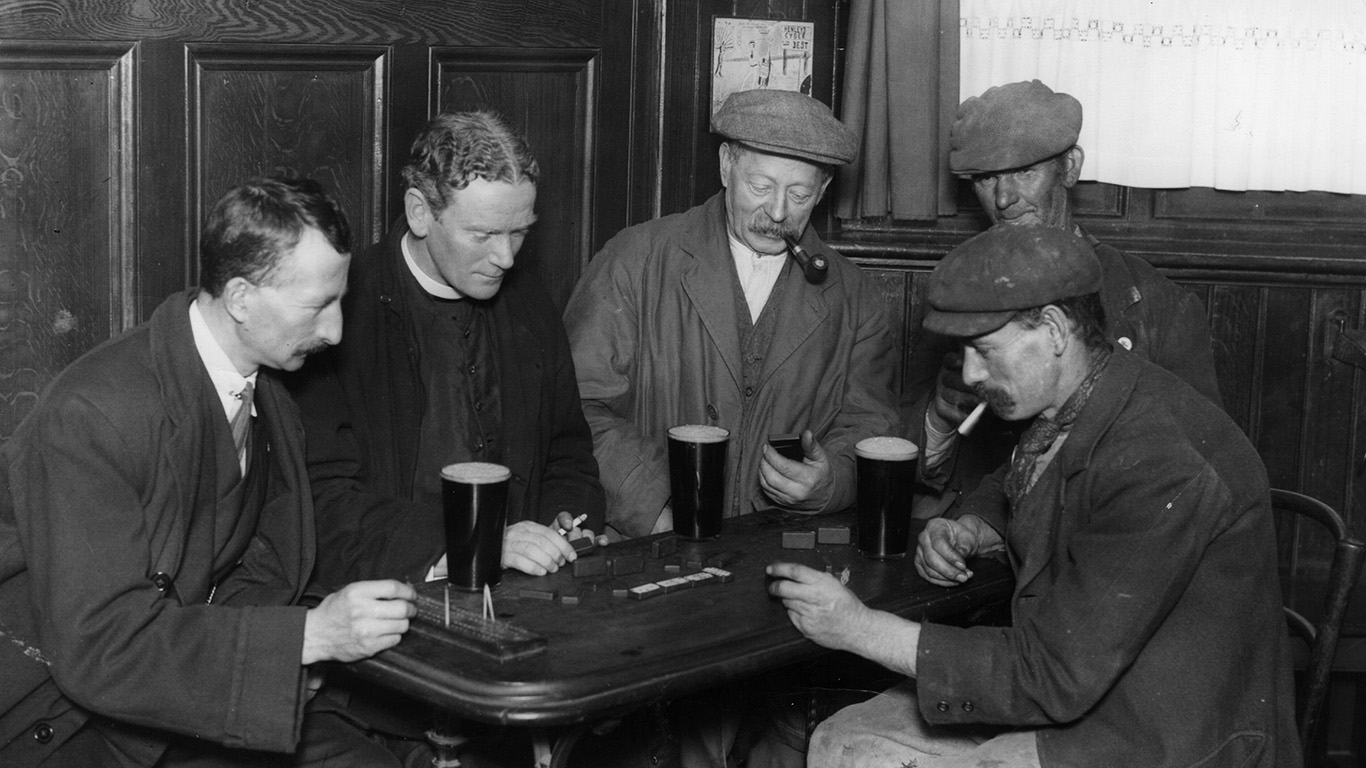
Help others, but they have to help themselves
In the early 1900s, as people tried to help alcoholics overcome their addiction they’ve learned that those with an addiction ultimately have to want to help themselves. This applies today to all types of addition, be it alcohol, drugs, cigarettes or anything else.
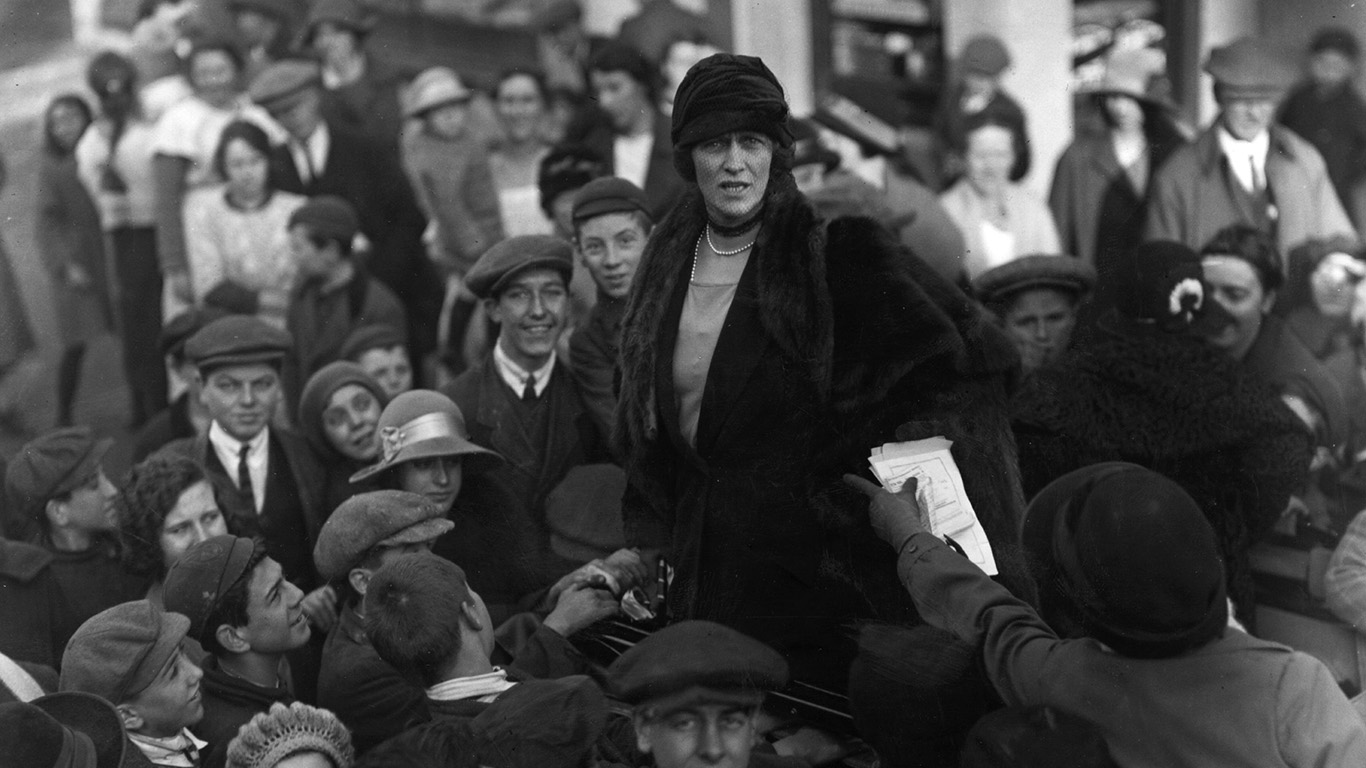
It is important to remember in this hyper-polarized political world that people may disagree over issues. Other people may simply be unpleasant. But not liking a person for any reason should not degenerate into hatred.

Everyone’s talents are useful
Like in the early 20th century, the economy today is evolving rapidly, requiring new skills and talents to adapt to the changing world. At the same time, talents acquired from years in the workplace are still valued. And don’t be bashful about using them. As Benjamin Franklin once said, “Hide not your talents, they for use were made. What’s a sundial in the shade?”
[in-text-ad-2]

You are responsible for who you are
Responsibility means taking ownership of your actions and taking control of your life. This became a challenge for people in the early 20th century as life accelerated. Failure to take responsibility for who you are can result in failing in your career and your personal life.

Forgive
Forgiveness is a theme revisited many times in the Bible. Among the biblical verses that discusses forgiveness is Matthew 6:14-15: “For if you forgive men their trespasses, your heavenly Father will also forgive you. But if you do not forgive men their trespasses, neither will your Father forgive your trespasses.” People find it hard to forgive for several reasons — they feel that the offending party should be punished or that forgiving would condone their actions. However, forgiveness is a powerful and empowering thing.
[in-text-ad]

People can change
If change means altering one’s habits and behaviors, then people have the ability to change. But the person must first recognize that his or her behaviors might be harming their lives and have the desire to make those changes.
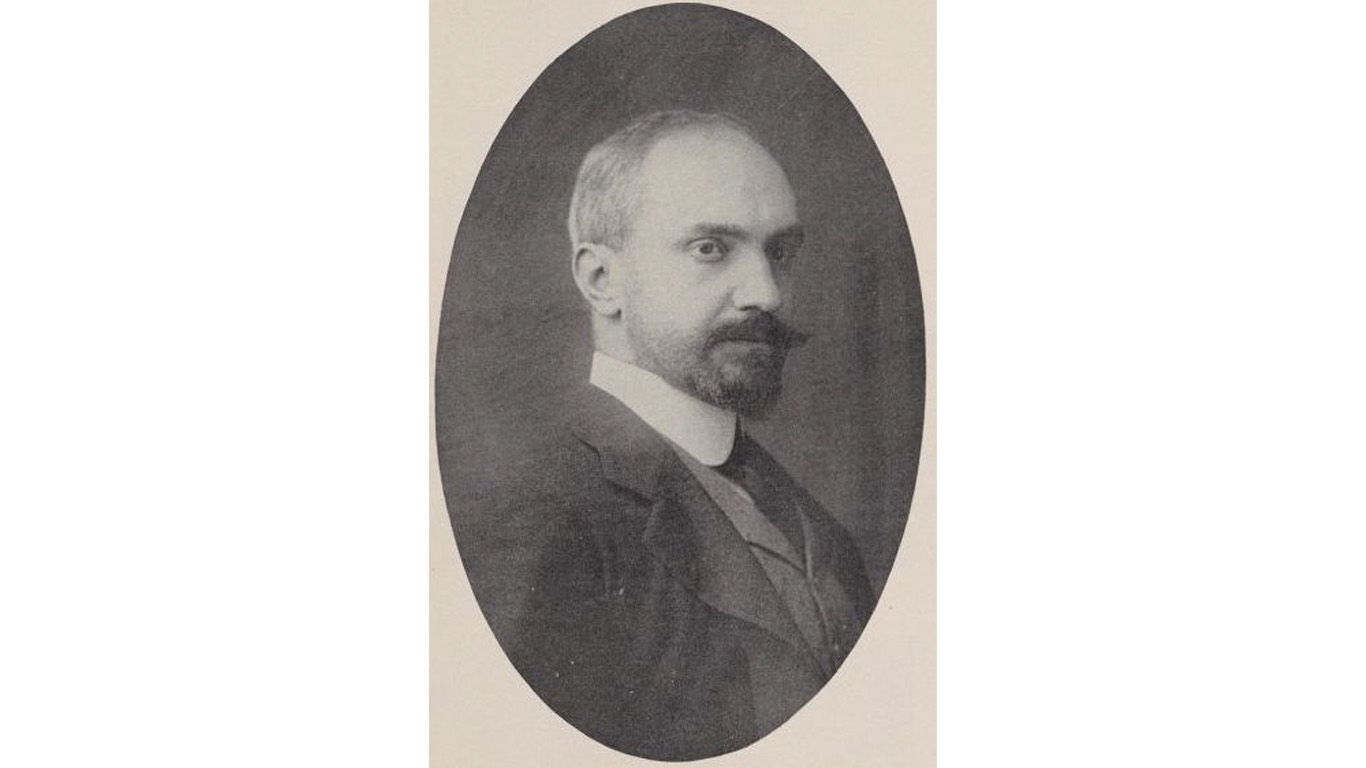
Learn from the past
One of the most-quoted phrases of the 20th century was by essayist and philosopher George Santayana: “Those who cannot remember the past are condemned to repeat it.”

Let the past go
We find it hard to let the past go because of how we are wired. According to physicist Frank Heile, human consciousness has a difficult time living in the present, and we recall past events that hurt us. The more we think about these events, the more attached we become to them.
[in-text-ad-2]

Be empathetic and kind
Being empathetic and kind puts us in touch with our essential humanity. Buddhists believe there is enough material wealth in the modern world and that we are lacking loving-kindness and goodwill — which doesn’t cost anything.

Don’t judge a book by its cover
This is one of the English language’s most famous metaphorical idioms. According to bloomsbury-international.com, the phrase first appeared in the Piqua Democrat in Piqua, Ohio: “Don’t judge a book by its cover, see a man by his cloth, as there is often a good deal of solid worth and superior skill underneath a jacket and yaller pants.” The phrase was probably well known to those in the early 20th century.
[in-text-ad]

Try avoiding debt
Literature is full of references to personal debt, and none are approving. The ancient Roman writer Publilius Syrus said, “Debt is the slavery of the free.” In the early 20th century, before the widespread use of credit cards and other financial instruments, large household debt was rare. Mortgages as we know them first came on the scene in 1934. Today, consumer debt is exploding. It stood at $14 trillion in the first quarter this year.
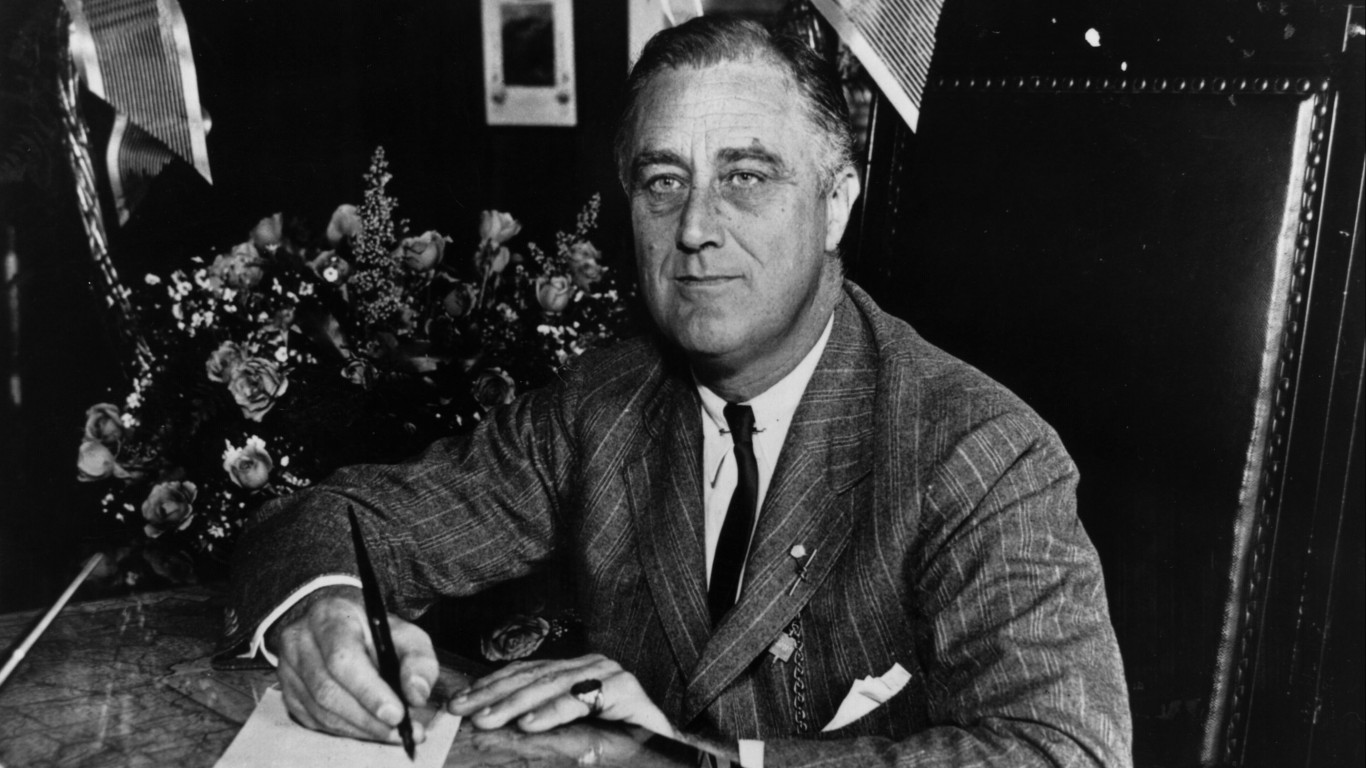
Fear is mostly illusory
President Franklin Roosevelt sought to allay the nation’s concerns about the economy in his first inaugural address by saying “the only thing we have to fear is fear itself.” What people fear most is failure — in relationships or in a job, for example. According to author and psychologist Dr. Susan Jeffers (“Feel the Fear and Do it Anyway”), in order for people to overcome their fears, they must confront them.

Stop and smell the roses
Even though the pace of change was quickening in the early 20th century, people still spent time enjoying life’s pleasures. New modes of transportation and better roads allowed Americans of many socioeconomic strata to go on vacation, enjoy the new diversion of movies, or spend an afternoon in an urban park. Americans were also made aware of the physical benefits of exercise to fend off stress.
[in-text-ad-2]
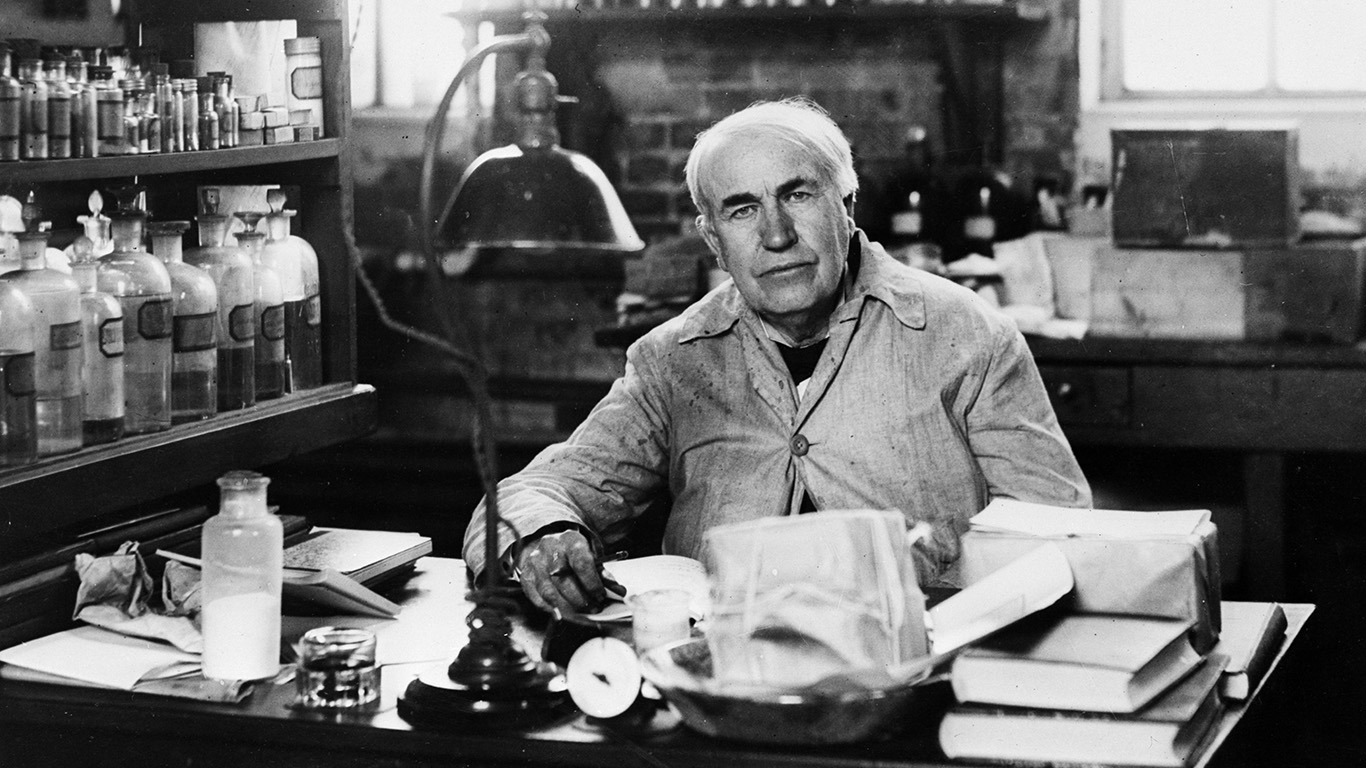
Learn from failure
History is peppered with accounts of failure by those who eventually made a difference in people’s lives. Even though Thomas Edison’s inventions were changing people’s lives in the early 20th century, it is important to know he failed a thousand times before his light bulb worked. He didn’t look at it that way. “I didn’t fail 1,000 times,” he said. “The light bulb was an invention that took 1,000 steps.”
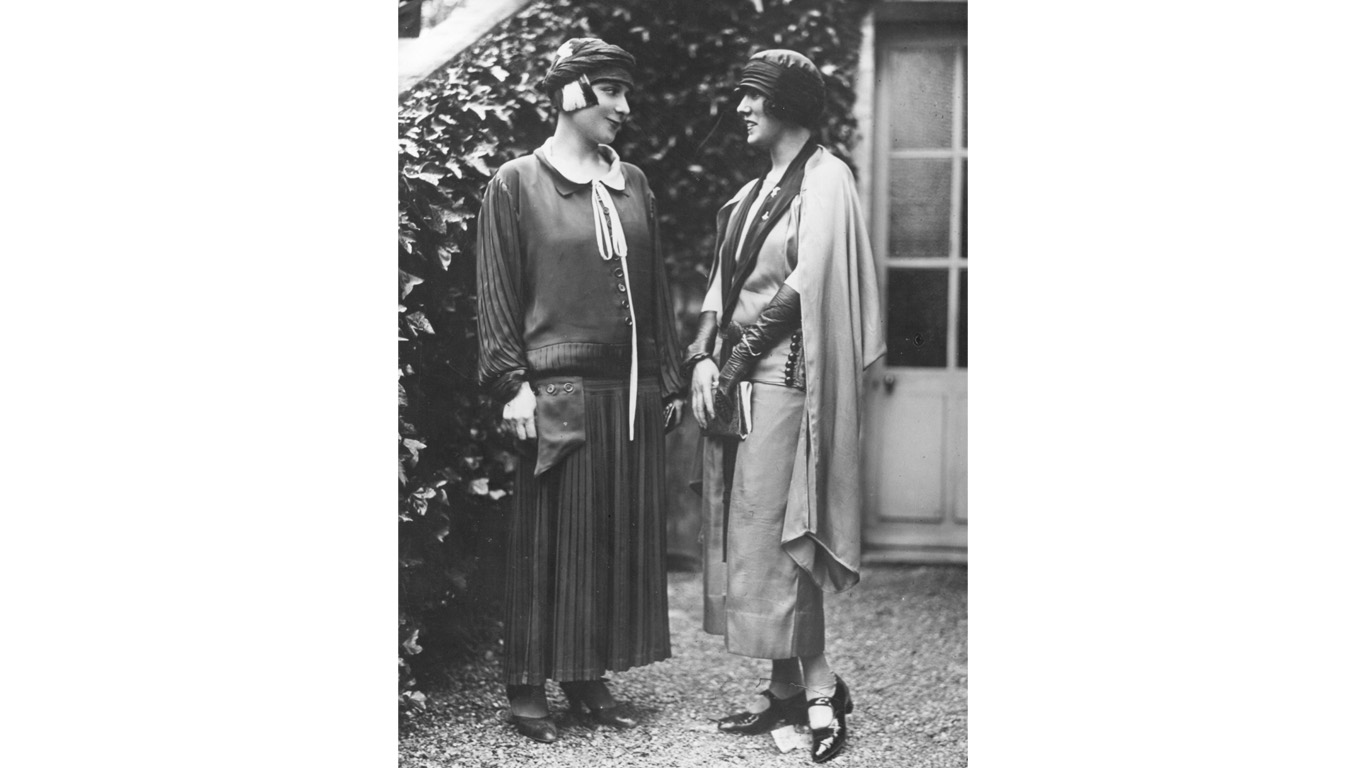
Friends are worth keeping
Good friends are worth holding on to, and good friendships need to be cared for and nourished. One hundred years ago, that was easier to do because many people lived and worked in the same town all their lives.
[in-text-ad]

Manage anger
Losing control of your anger has repercussions such as hurt feelings, resentment, and regret. Culturally, losing your temper in the early 20th century was frowned upon because it was associated with losing one’s self-control and being overwhelmed by emotion that clouds reason and intellect.
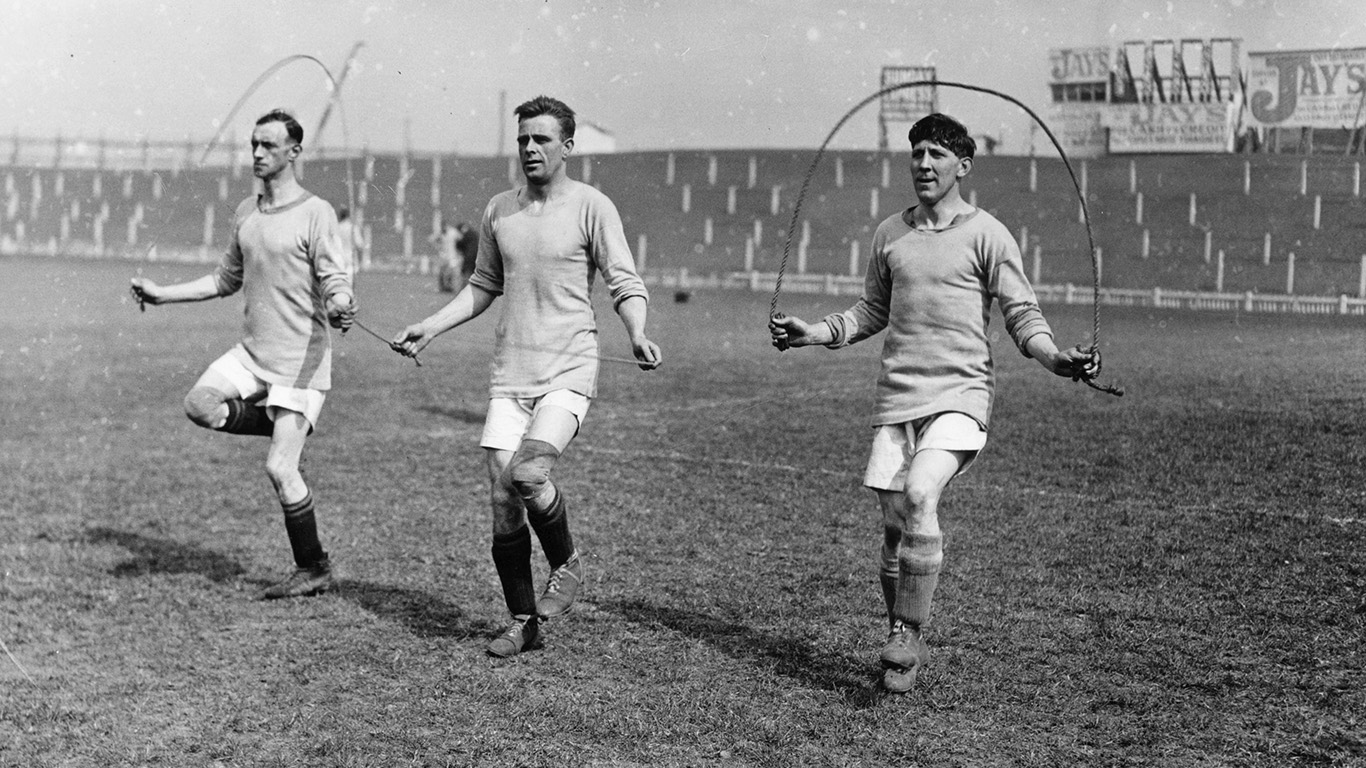
Exercise
The importance of exercise to reduce stress and improve one’s health was becoming more widely known in the early 20th century.
[in-text-ad-2]

Keep learning
It wasn’t until the early part of the 20th century that child-labor laws were enacted and children had to attend school. By 1900, 31 states required children aged 8 to 14 to attend school. After school, lifelong learning was limited to what one read in books and newspapers. Today, lifelong learning is important for personal and professional development and more accessible.

Worry makes you stressful
The early part of the 20th century was called “The Age of Anxiety,” with European powers vying for military supremacy. Even though those concerns were an ocean away from the United States, Americans were concerned about getting drawn into the gathering storm. Today, the stress comes from external factors such as terrorism as well as concerns about paying for college to saving for retirement.
[in-text-ad]

There are no shortcuts do doing things correctly
“Rome wasn’t built in a day.” In other words, there are no shortcuts to success. That was an axiom known to those in the early 20th century, and it applies to today.

Don’t procrastinate
It’s easy to procrastinate and put off what needs to be done. The Bible and ancient writings imposed a moral imperative on avoiding procrastination.

Consider what you say
Once you’ve said something, there is no taking back your word choice. People in the early 20th century were aware of this.
[in-text-ad-2]

Be on time
“Punctuality is the soul of business,” according to a mid-19th century English proverb. Being on time took on greater importance as the world became more urban and industrialized, and as the workforce depended on mass transit and highways to get them to work on time.

Don’t lose your temper in the workplace
If you’re a boss, losing your temper in front of those who work for you inhibits your supervisory capacity. The workplace is a professional space, and supervisors are expected to conduct themselves in a professional manner. Of course, if you’re not a supervisor, this advice also applies as it can create unpleasant relationships and work environment.
[in-text-ad]

Be decisive
Being decisive provides clarity for those working for the boss. It also instills faith in the person who is leading them. Indecisiveness is linked to not being productive. Being decisive is important not just in the workplace but in all aspects of life.

Make rules flexible
Rules should be flexible because not everyone is cut from the same cloth. When the Boston Celtics dominated the National Basketball Association in the 1960s, Coach Red Auerbach had a set of rules for his players, except for star center Bill Russell. Auerbach allowed Russell to sit and drink tea during scrimmages, and he permitted him to skip practice. By the way, the Celtics won 11 NBA titles during the Russell era.

Don’t hire friends
John Graham, a self-made millionaire from the 19th century, once said, “The easiest way in the world to make enemies is to hire friends.” Hiring friends changes the dynamic between you and your pal, possibly for good. It can also alienate others in the workplace who may perceive favoritism.
[in-text-ad-2]

Carpe diem
Many children in the early 20th century might have read the works of Roman writers such as Seneca, who urged people to seize the day. “The whole future lies in uncertainty: Live immediately.” That lesson is no less true today.
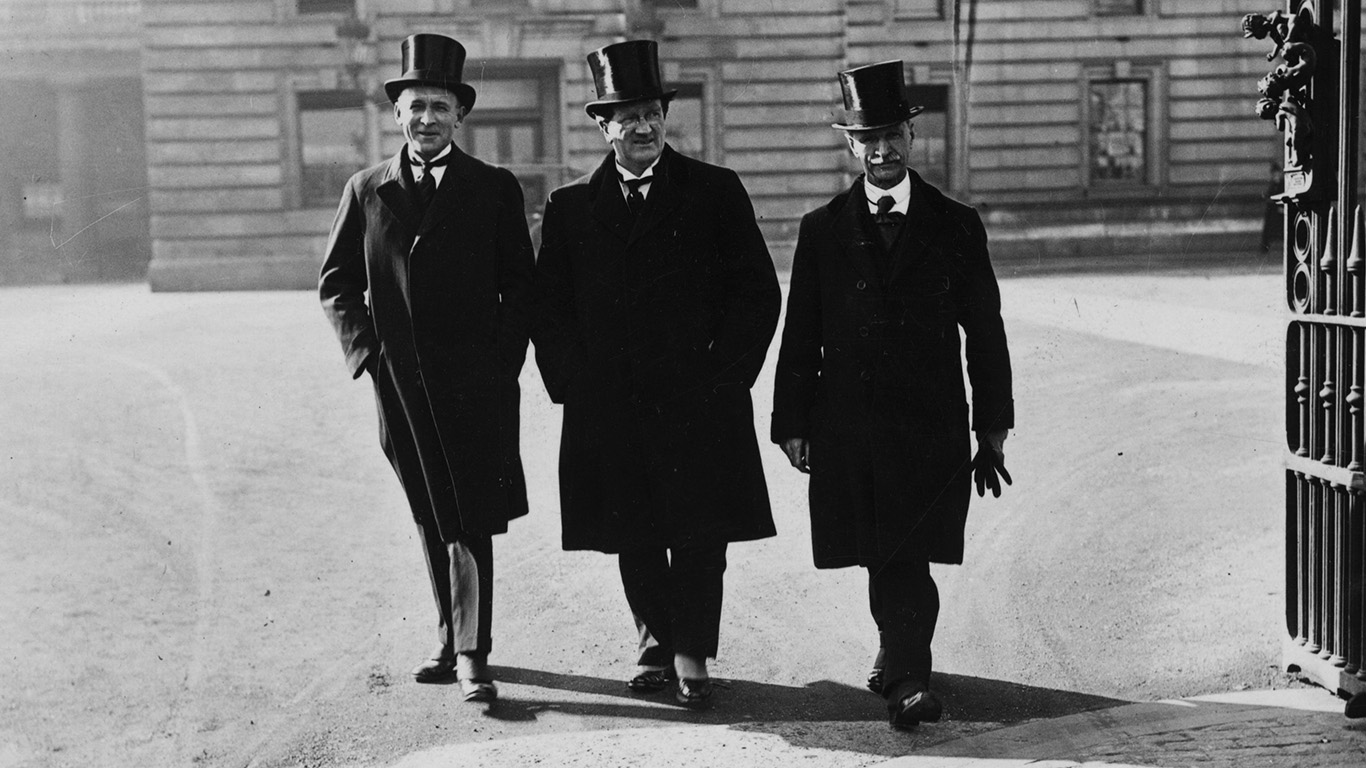
Appearances matter
First impressions may be deceiving, but they are lasting. Appearances counted, and men and women, regardless of social station, dressed their best for work in the cities and towns of America.
[in-text-ad]
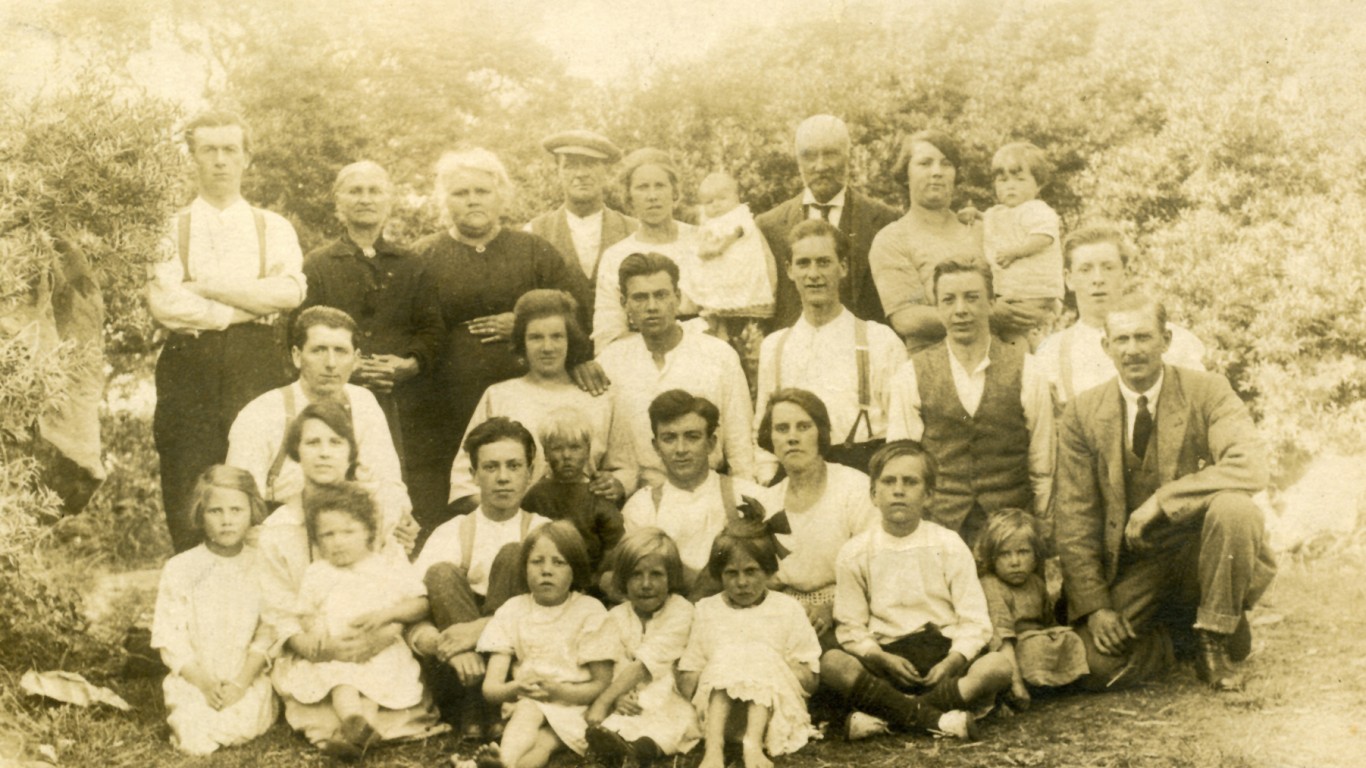
Take care of your family
In the early 20th century, there were few government safety-net programs to protect the American family, so family members depended much more on each other than today. Still, having a supporting network and taking care of one’s family remains as true today as it always was.

Make discipline into habits
Schools in the early 20th century were geared toward preparing students for the work world. Students were disciplined to complete assignments in a timely manner. For many students, the repetition of the work routine developed into work habits that carried over into their work life. Today, while the tasks may be different, the idea is just as valid.

Be clear in communicating
Because there was no social media and little technology to speak of, communication was less of a complicated task in the early 20th century, but no less important. Today, colleagues, friends, and family can track our movements and follow each of our posts online. Clear communication may be of even greater importance.
[in-text-ad-2]

Write down your goals
People had more time to think about their goals and write them down in the early 20th century. Putting ideas on paper or in a Google document requires discipline and time, but it helps you stay organized and focused.

Admit when you’re wrong
It has always been difficult for people to admit they were wrong — in the early 1900s and today. Hiding the truth seems easier, but it can lead to problems later. Admitting when you’re wrong actually raises your standing with others.
[in-text-ad]

Read every day
People in the early 20th century read more books or newspapers. Reading can be crowded out by overscheduling and overwork, but people still manage to use what leisure time they have to read books — online, in audio books, or the old fashioned way.

Be grateful
Each Thanksgiving, Americans count their blessings with family and friends. There is no reason we can’t express our gratitude more often than once a year, through reflection while on a walk or exercising.

Be open to new ideas
In the early 1900s, America, a comparatively young nation, was open to new ideas. Being open to new ideas helps keep you young.
[in-text-ad-2]

Take the lead, don’t be led
The lesson to be learned about leading is that you have to want to lead and accept the consequences of the responsibility.
The last few years made people forget how much banks and CD’s can pay. Meanwhile, interest rates have spiked and many can afford to pay you much more, but most are keeping yields low and hoping you won’t notice.
But there is good news. To win qualified customers, some accounts are paying almost 10x the national average! That’s an incredible way to keep your money safe and earn more at the same time. Our top pick for high yield savings accounts includes other benefits as well. You can earn up to 3.80% with a Checking & Savings Account today Sign up and get up to $300 with direct deposit. No account fees. FDIC Insured.
Click here to see how much more you could be earning on your savings today. It takes just a few minutes to open an account to make your money work for you.
Thank you for reading! Have some feedback for us?
Contact the 24/7 Wall St. editorial team.